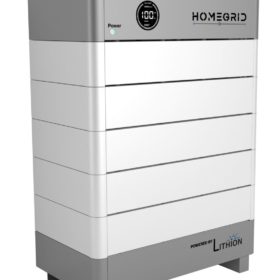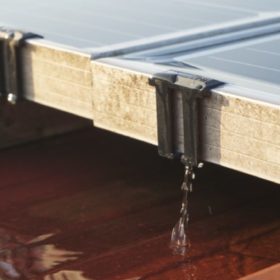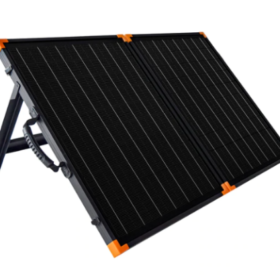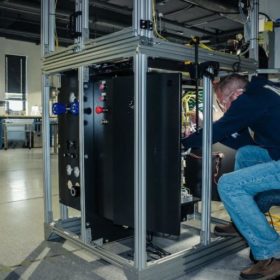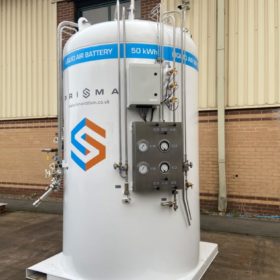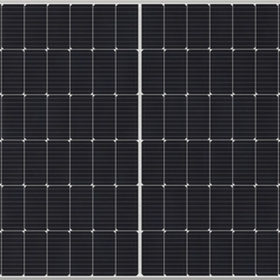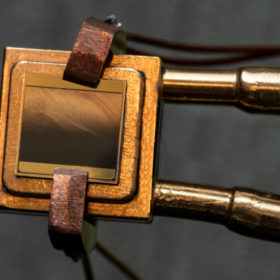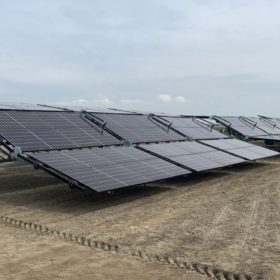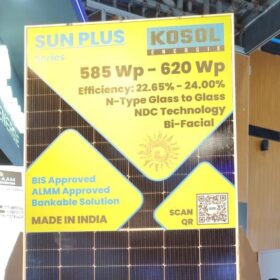Stackable home battery with 9.6 kWh to 38.4 kWh of capacity
Lithion’s Stack’d Series LFP batteries are modular and can be scaled in 4.8 kWh increments, from 9.6 kWh to 38.4 kWh.
New water-draining device for rooftop PV systems
Portuguese startup Solarud has developed a way to eliminate soiling around the frames of PV panels with low inclination slopes. The device drains water that would otherwise stay stagnant on the surface of modules.
Renac Power unveils high-voltage residential battery
Renac Power’s new plug-and-play battery has a storage capacity of 3.74 kWh, but it can be enhanced in series with up to five batteries to 18.7 kWh. It has a nominal voltage of 96 V and a voltage range of 81 V to 108 V.
Solar briefcase packs in 200 W for off-grid, mobile living
FlexSolar has developed a foldable, portable PV briefcase kit with a charge controller and connection cables.
US startup claims hydrogen output for $0.85/kg or less via new water vapor electrolyzer
Advanced Ionics has developed an electrolyzer that runs at temperatures below 650 C. It is reportedly able to produce hydrogen for $0.85/kg or less. CEO Chad Mason recently spoke with pv magazine to provide a closer look at the water vapor electrolysis tech.
UK group develops liquid air energy storage tech
A UK consortium has developed the Prisma system, which stores thermal energy in liquid air form to provide onsite compressed air, via a latent energy cold storage tank filled with a phase-change material. It is expected to have a levelized cost of storage of GBP 114 ($143.10)/MWh.
Sharp launches 540 W bifacial solar module
Sharp’s new IEC 61215 and IEC 61730-certified-certified panel features 144 half-cells based on M10 wafers and a 10-busbar design. Its operating temperature coefficient is -0.349% per degree Celsius and its power tolerance reaches up to 5%.
MIT, NREL researchers develop 40%-efficient thermophotovoltaic cell for grid-scale thermal batteries
The device is described as a heat engine with no moving parts that is able to produce power from a heat source of between 1,900 to 2,400 C. This concept is known as thermal energy grid storage (TEGS) and consists of a low-cost, grid-scale storage technology that uses thermophotovoltaic cells to convert heat to electricity above 2,000 C.
Transforming the energy storage market
Ensuring pragmatic energy storage transformation is proportional to tweaking the current battery storage chemistry. Zinc battery technology is gaining traction, changing the prevailing energy storage dynamics.
Mobile agrivoltaic system from the Netherlands
Created by a Dutch group of companies and research institutions, the mobile solar system may also be combined with an electrolyzer for hydrogen generation. Two prototypes are currently being tested by a farmer and a research institute in the Netherlands.
